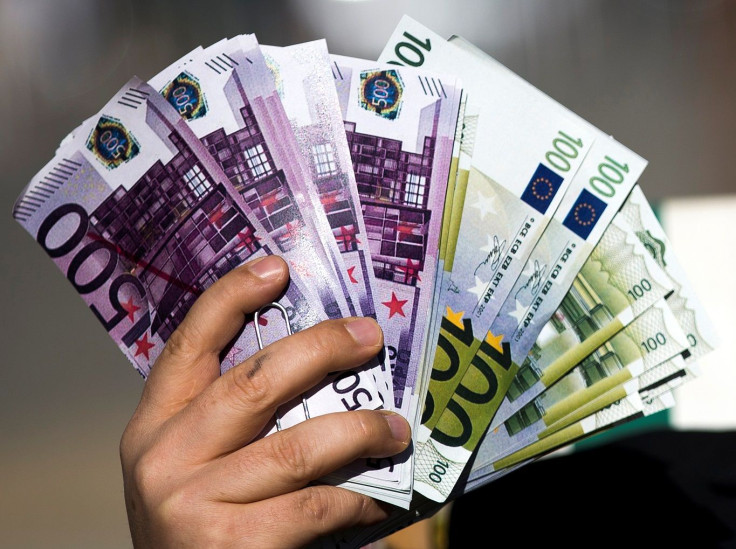Panama Papers leaks show people want more transparency and accountability from their leaders

There are leaks, and there are the Panama Papers, the mother lode of all leaks that have outshadowed the revelations of previous celebrated whistle-blowers like the WikiLeaks, Julian Assange, Chelsea Manning, and Edward Snowden. The outcry from a global public over the betrayal of the public trust has never been greater. Citizens, journalists, and an awakened public are rallying for lasting change. They don’t want the noise to fade into the woodwork; instead, they want to drum it up into a clarion call to ensure that these things never happen again.
The Panama Papers is a treasure trove of data that have been accumulated and shielded from prying eyes for half a century. The enormity of the leaks is massive. It encompasses 4.8 million emails, 3 million folders, and 2.1 million PDF documents from the Panama-based law firm Mossack Fonsaca. The information exposes the offshore accounts of more than 150 of the richest people in the world, including royalties, world leaders, public officials, celebrities, business tycoons and even suspected criminals.
All these documents were first forwarded a year ago, one explosive part after another, to German investigative journalist Bastian Obermayer. The reporter and his newspaper, Süddeutsche Zeitung, ended up asking for the help of the Washington-based International Consortium of Investigative Journalists. The consortium in turn invited their intrepid colleagues from 109 news agencies based in more than 70 countries to sift through, verify, analyse, scrutinise and finally publish the data. The repercussions might turn out to be revolutionary at best, and catastrophic at the worst.
The John Doe who unleashed the encrypted data to Obermayer remains anonymous. All communications with him were done online, and he refused to meet anyone in person. His motive, as he explained to Obermayer, was simple enough: “I just want to expose these crimes to the public.”
He got his wish as the fallout has triggered an increasing unrest in the countries that had their leaders named as offshore account holders. What was more damning was that, unlike other leaks, the spouses, children, parents and other relatives of these heads of states are also cited as having siphoned huge amounts of money to other countries. Some of these transactions may be legal as investing in offshore accounts isn’t unlawful per se. Nevertheless, it is feared others, or perhaps many of the names involved, use offshore accounts for tax avoidance and money laundering.
The NPR lists down the consequences that are continuing to erupt all over the world, and the end is not yet in sight. Icelandic Prime Minister David Gunlaugsson has resigned following street protests and rallies. He and his wife are accused of profiting through an offshore account monies sent to weak Icelandic banks that had received government bailouts.
Russian Prime Minister Vladimir Putin’s closest advisers have been implicated. Although he himself had not been mentioned, the head of state fired back that the leaks were a plan to destabilise his government. Gonzalo Delaveau, the head of Chile’s anti-corruption task force, resigned after his name was associated with an offshore account. Even reputable British Prime Minister David Cameron has been tarnished. The leaks do not mention his name, but they reveal that his father avoided taxes in the UK by basing his investment fund in the Bahamas. The Chinese government has seemingly clamped down on information about the leaks after members of its famous political families were affected.
France has blacklisted Panama from its financial transactions, and the country is fighting off its re-branding as an oasis for tax crooks and money launderers.
The more authoritarian governments can censor protests, and those that have been inured to corruption may just shrug their shoulder. However, all indications point that the backlash can awaken a citizenry who will not be coerced or persuaded to bury their heads in the sand again. The explosion of information in the digital age has produced a data-driven Internet-wired populace who devour content regularly from reputable news apps like the the BBC, Wallstreet, Born2Invest and Fortune. Smart readers check and counter-check the reports they read. More important, they ask themselves, “How does this information affect me?”
As the Guardian predicts one possible tide of change, “ The fundamental problem that the Panama Papers brings to light is a question of global governance: the wrong people are in power. The only way the 99 percent is going to solve that deeper problem is if a social movement arises that is willing to use protest to swing elections in multiple countries in order to take power and govern the world.”
Scroll pictures people who will demand accountability and nothing less. It says, “ If we stop at naming and shaming these celebrities, we will not get too far. It is the banks, law firms, trusts, intermediaries, legal structures and even governments that aid the machinery that should be in our crosshairs. Government-led investigations should show us what they are doing to trace and dismantle these structures.”
No one yet can forecast accurately the ultimate outcome of the Panama Papers. But the instruments of protest are evolving and cannot be held back. In a world where social media has led to the toppling of long-entrenched dictatorships, “leak-tivism” just might turn outcry into transformative action.





















